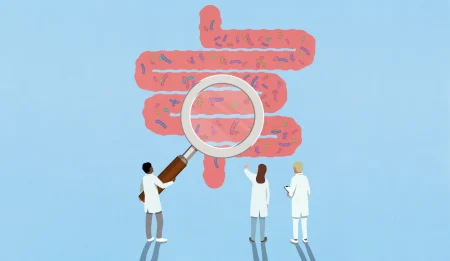2024 witnessed a complex interplay of global health challenges, marked by both alarming outbreaks and promising declines in certain areas. Infectious diseases like dengue fever and mpox resurfaced with significant force, while extreme heat events underscored the growing threat of climate change to human health. Amidst these concerns, encouraging trends emerged in the fight against drug overdoses in the United States and advancements were made in addressing long COVID, severe allergic reactions, and ethical medical practices.
Dengue fever experienced an explosive surge in the Americas, with cases drastically outpacing those of the previous year. Concurrently, mpox reemerged as a public health emergency, primarily affecting Africa. Avian influenza, or bird flu, also presented a concern with confirmed cases in humans linked to exposure at poultry and dairy farms. These infectious disease outbreaks highlighted the ongoing need for robust surveillance, preventative measures, and effective treatment strategies to mitigate their impact on global populations.
The intensifying effects of climate change were starkly evident in the widespread heatwaves that gripped various regions of the world throughout 2024. From India and Europe to Northern Africa and the United States, extreme heat posed significant risks to human health, particularly for vulnerable populations. Scorching temperatures even impacted Australia and Brazil during their winter seasons, emphasizing the global reach of climate change’s consequences. The introduction of HeatRisk, an online resource in the United States, aimed to provide localized information on heat-related health risks and air quality, demonstrating a proactive approach to managing the growing threat of extreme heat.
Access to clean drinking water, a fundamental human right, remained a significant challenge for a substantial portion of the global population. Revised estimates indicated that the number of people lacking access to safe water may be considerably higher than previous official figures, underscoring the urgent need for improved sanitation infrastructure and water resource management strategies. This disparity in access to clean water poses a serious threat to public health and highlights the need for global cooperation to ensure this essential resource is available to all.
A glimmer of hope emerged in the United States with a significant decline in drug overdose deaths. This downward trend, the largest recorded drop in the nation’s history, offered a promising sign in the ongoing battle against the opioid crisis. While experts continued to analyze the contributing factors to this decline, the decrease suggested that prevention efforts, harm reduction strategies, and increased access to treatment may be yielding positive results. Continued monitoring and evaluation will be crucial to sustain this positive momentum.
The COVID-19 pandemic, while no longer at the forefront of global health concerns, continued to necessitate vigilance and adaptation. Updated vaccines targeting circulating variants were approved and distributed, and free at-home testing programs were reinstated in anticipation of potential winter surges. Furthermore, a significant step was taken in addressing the long-term effects of COVID-19 with the establishment of an official definition for long COVID. This formal recognition of the condition, characterized by persistent symptoms and diverse organ system involvement, paves the way for improved diagnosis, treatment, and support for those affected by this debilitating condition.
Finally, significant advancements were made in improving patient safety and ethical medical practices. The FDA approved the first epinephrine nasal spray for severe allergic reactions, providing a non-injectable alternative for both adults and children. This new delivery method has the potential to increase access to life-saving treatment and improve outcomes for individuals experiencing anaphylaxis. Additionally, new federal guidelines mandated written informed consent for sensitive medical exams, addressing ethical concerns surrounding unauthorized procedures performed on patients under anesthesia. This measure reinforces patient autonomy and strengthens the trust between patients and healthcare providers. Further advancements also occurred in mammogram reporting, with new regulations requiring the inclusion of breast density information, empowering patients with more comprehensive information about their breast health.














